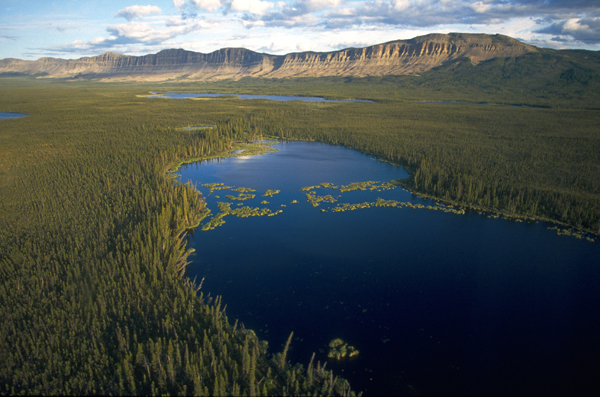Boreal forest in the Northwest Territories, Canada
Credit: D. Langhorst
At least among scientists and those closely following climate change, it should come as no surprise that protecting forests is one of the most crucial components to lessening the effects of climate change. Not only do forests pull ever-increasing carbon dioxide out of the atmosphere, they store it safely within plant matter and soils immediately below—acting as a partial climate neutralizer or carbon bank against the rapid pace of climate change. Estimates vary, but deforestation and land use changes are estimated to account for an average of around 12% of all human-related emissions, roughly equivalent to all of the world's cars, trucks, planes, and transport combined.
The Canadian Boreal Forest alone (our particular area of interest) stores 208 billion tonnes of carbon in its trees, wetlands, and soils. That number may not mean much to most people, but here's one that may: this is equivalent to more than 20 years' worth of the entire world's carbon emissions at 2012 levels—including the heavy-hitters of fossil fuels, cement production, and forest loss.
This week yet another revelation about forests' invaluable role in softening the effects of climate change emerged.
Anyone who has strolled through a pine forest knows the strong, yet alluring scent emitted from pine trees. As it turns out, this refreshing fragrance isn't just beneficial to our experience with nature. According to a recent study in the journal Nature, the scents that pine trees release actually creates particles in the atmosphere that help reflect sunlight back into the sky. In turn, this helps promote the creation of clouds and helps keep our planet cool and healthy.
It seems that the better we learn and understand trees and forests, the more and more we come to appreciate them beyond their inherent beauty. I suspect that as time goes on and research becomes even more fine-tuned we will continue find countless more benefits to protecting the nature we have all come to know and love.


